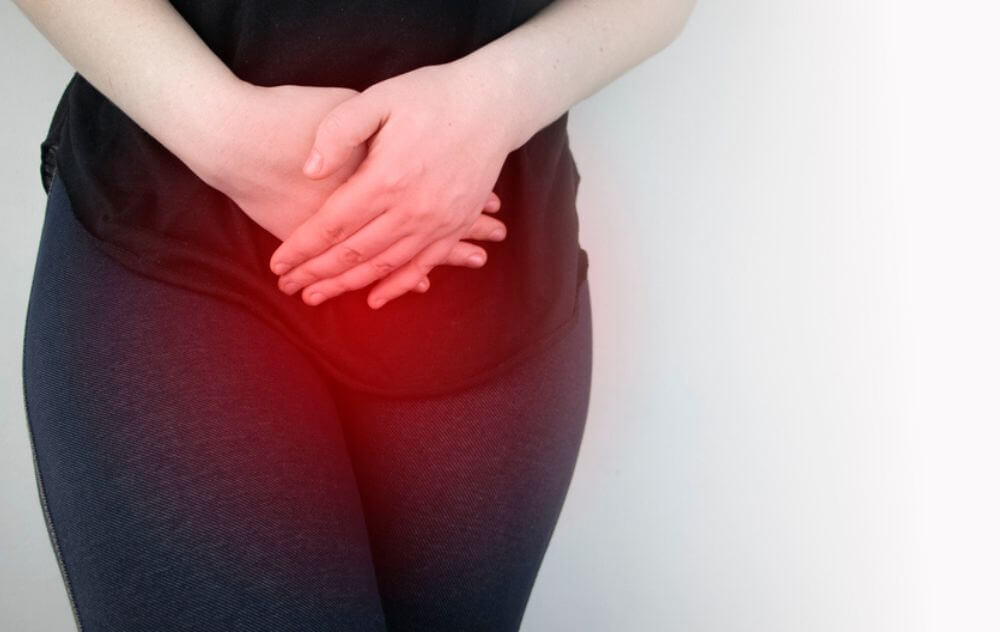
Topics Covered by This Blog:
- How Do Fibroids Cause Heavy Bleeding and Clots?
- What Type of Fibroid Causes Heavy Bleeding?
- Can a Small Fibroid Cause Heavy Bleeding?
Heavy menstrual bleeding and passing clots are often the first indications that you might have uterine fibroids, noncancerous growths that develop in the uterus. Fibroids can cause heavy bleeding in a number of ways:
- They can put pressure on the lining of the uterus, making it thicker and more prone to bleeding.
- They can prevent the uterus from contracting properly, which can make it difficult for the uterus to stop bleeding during menstruation.
- They can stimulate the growth of blood vessels in the uterus, which can lead to increased bleeding.
The severity of menstrual bleeding caused by fibroids can vary from person to person. Some women may experience only mild bleeding, while others may experience bleeding that is so heavy that it interferes with their daily activities.
Heavy or abnormal periods are defined as:
- Periods that last longer than three to six days
- Bleeding that seeps through a pad or tampon within one to two hours
- Bleeding or spotting between periods
- Passing blood clots larger than a quarter in size
If you are experiencing heavy menstrual bleeding or passing blood clots, it is important to see a doctor to rule out other possible causes, such as hormonal imbalances or bleeding disorders. If you are diagnosed with fibroids, your doctor can discuss treatment options with you, which may include uterine fibroid embolization (UFE).
Take our fibroid symptom checker to see if you may be at risk for fibroids.
Fibroids and heavy periods can affect your quality of life in many ways. If your fibroids are causing heavy bleeding that takes a toll on your daily activities, it may be time to look into treatment. Other fibroid symptoms include painful cramps, frequent urination, an enlarged abdomen, and painful sex.
USA Fibroid Centers offers a safe, minimally invasive, office-based treatment called uterine fibroid embolization (UFE). UFE is a same-day outpatient procedure that can shrink fibroids and alleviate symptoms like heavy bleeding. Fibroid embolization preserves fertility and offers many other benefits over more invasive fibroid surgeries.
Below, we answer common questions, such as why fibroids cause heavy bleeding and provide options for fibroid heavy bleeding treatment. For additional information, talk to one of our leading fibroid specialists.
SCHEDULE AN INITIAL CONSULTATION
How Do Fibroids Cause Heavy Bleeding and Clots?

Fibroids cause heavy bleeding due to several factors. While even one small fibroid can lead to heavy periods, the size, number, and location of your fibroids play a significant role.
Why do fibroids cause heavy bleeding and clots?
- Fibroids can place pressure on the inner lining of the uterus, leading to heavy bleeding.
- When fibroids are present, the uterus may not contract properly to stop period bleeding.
- Fibroids can stimulate blood vessel growth, which may cause heavy, irregular periods and bleeding between periods.
- Hormonal changes associated with fibroids can impact menstrual cycles, leading to heavy bleeding.
It is important to note that not all fibroids cause heavy bleeding, and other health conditions unrelated to fibroids can cause heavy periods and clotting. If you are experiencing abnormal bleeding, our fibroid specialists can help determine the cause and recommend a solution.
What Type of Fibroid Causes Heavy Bleeding?
Fibroids and heavy periods often go hand-in-hand. Any fibroid type can cause heavy menstrual bleeding.
Types of fibroids include:
- Intramural: This type of fibroid grows within the muscles of the uterine wall. Intramural fibroids commonly occur in multiples and can grow very large if left untreated. Although small intramural fibroids can be asymptomatic, many women experience symptoms like heavy periods, irregular bleeding between periods, and pelvic or lower back pain.
- Subserosal: These fibroids grow outside the uterus, bulging into the pelvic or abdominal cavity. They can be attached to the uterus directly or via a thin stalk called a peduncle. Large subserosal fibroids can press upon neighboring organs like the bladder, rectum, or intestines, causing symptoms like a feeling of heaviness or fullness in the pelvic region, frequent urination, constipation or bloating, abdominal pain, and cramping.
- Submucosal: This fibroid type develops within the endometrium, the innermost lining of the uterus. Submucosal fibroids vary in size, developing individually or in clusters. Of all fibroid types, these are most likely to cause heavy menstrual bleeding. Other symptoms include bleeding between periods, anemia, fatigue, dizziness, pelvic or lower back pain, and passing frequent or large blood clots.

If you experience any of these fibroid symptoms, schedule an appointment with our experienced fibroid specialists. Fibroids are usually diagnosed by a pelvic exam, ultrasound, or MRI imaging exam.
Can a Small Fibroid Cause Heavy Bleeding?
Many small fibroids are asymptomatic and go unnoticed. However, a small fibroid can cause heavy bleeding, depending on its type and location. For instance, submucosal fibroids commonly cause heavy bleeding regardless of size.
Even if you’re suffering from a small fibroid, UFE can help relieve your symptoms and restore your quality of life. One of our compassionate fibroid experts can assess your situation and recommend the best course of action.
Talk to a Doctor at USA Fibroid Centers
Learn more about your treatment options for fibroids and heavy bleeding by scheduling a consultation with a fibroid specialist at USA Fibroid Centers. Our compassionate team of specialists will work with you to develop a personalized treatment plan that meets your needs and goals.
Don’t wait to learn more about your treatment options. Fibroids can cause a number of uncomfortable and debilitating symptoms, but there are effective treatments available. Many women with fibroids believe that hysterectomy (the complete surgical removal of the uterus) is their only solution, but minimally invasive, outpatient UFE treatment can help relieve symptoms of heavy or irregular bleeding and blood clots caused by fibroids. The procedure involves less risk and a shorter recovery time than fibroid surgery and does not require a hospital stay, general anesthesia, or stitches. Most women leave with only a bandaid and recover within one to two weeks.
Schedule your consultation today. It’s easy to schedule a consultation online or by calling us at 855.615.2555.
Find a convenient location near you. We have dozens of locations across the country, so you can find one that is close to your home or work.



